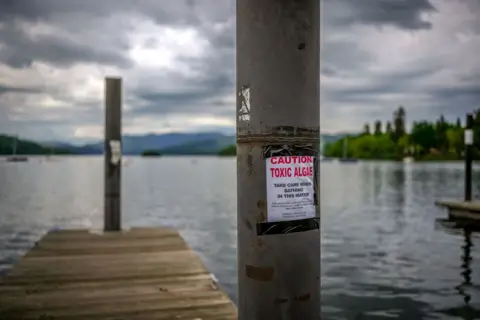In recent developments regarding environmental regulation, the government has announced a substantial uptick in criminal investigations targeting water companies. According to a formal statement issued by the authorities, the Environment Agency is currently examining numerous alleged violations related to environmental legislation. These infractions primarily involve excessive pollution discharges and a failure to maintain adequate water quality monitoring practices.
The figures shared by the government are revealing; the regulator has reportedly launched 81 criminal probes since the election in July 2024. This increase in investigative activity correlates directly with the recruitment of 400 additional staff members designed to bolster oversight efforts in the sector. Furthermore, legal proceedings for breaches have been initiated against seven water companies, indicating a concerted effort to enforce compliance with environmental regulations.
The response from Water UK, the representative body for water companies, was one of acknowledgment of the need for accountability. They expressed that investigations into firms should proceed when warranted and emphasized the importance of transparency within the industry. This announcement comes amidst growing dissatisfaction among the public over pollution incidents in waterways such as rivers and seas. Notably, data released by environmental campaigners last month indicated that the number of pollution incidents attributed to water companies in England has reached a ten-year peak.
Part of the reason for the increase in inspections can be traced back to recruitment initiatives set forth by the previous Conservative government. Earlier in 2024, the Conservative Party had announced plans to quadruple inspections and add 500 staff members whose primary focus would be on oversight and enforcement regarding water quality.
Despite the rise in investigations, it is crucial to note that none have yet resulted in convictions. Legal proceedings within this realm often stretch over extended periods and may take years to navigate through the judicial system. However, government officials stated that these inquiries have the potential to result in fines for water companies that could soar into the hundreds of millions of pounds. Environment Secretary Steve Reed underscored the significance of these investigations, declaring, “This Labour government is addressing the aftermath of the prior government’s negligence by instituting a record number of criminal investigations aimed at law-breaking water firms.”
In defense of its track record, the Conservative Party reiterated its commitment to reforming water and sewage infrastructures. They pointed out that during their time in office, they initiated several reformative measures, including a ban on bonuses for executives of water companies found guilty of criminal activities.
James Wallace, CEO of River Action, a prominent environmental campaign organization, welcomed the government’s renewed focus on pollution issues but raised a critical point. He noted that the law currently restricts jail time for water executives solely to instances of obstructing investigations, rather than for acts of pollution themselves. As he aptly put it, “It is important to recognize that jail time for water company executives remains highly unlikely. The law covers only attempts to conceal wrongdoing, and there is no need for such concealment when pollution is evident on a regular basis.”
This sentiment echoes the historic context of water management failures, highlighted by substantial penalties levied against companies like Southern Water, which faced a record £126 million fine in 2019 for extensive wastewater mismanagement and for intentionally falsifying performance data.
Ami McCarthy, head of political affairs for Greenpeace UK, commented on the ongoing situation, expressing relief that regulators are beginning to prioritize accountability amongst water firms. However, she also cautioned that consumers must not bear the financial repercussions of penalties imposed on these companies. She asserted, “Water companies have for far too long escaped scrutiny for breaching regulations and contaminating our rivers.”
Finally, a statement from Water UK defended the majority of firms within the industry, asserting that nearly 99% of sewage and water treatment facilities adhere to their respective pollution permits and indicating a commitment toward achieving complete compliance. The escalation in investigations therefore serves both as a warning to firms that misconduct will not be tolerated and as a promise to the public that the government is serious about protecting water quality across the nation.



